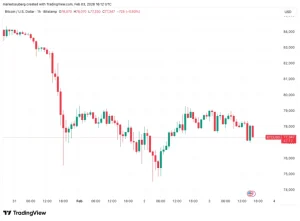Decoding Cryptocurrency Taxation: Implications for Investors and Policymakers

The taxation of digital assets has become a defining issue in financial governance, raising questions about compliance, market participation, and regulatory intent. As cryptocurrencies grow from niche instruments to mainstream investment vehicles, governments worldwide are grappling with how to regulate and tax them effectively. For investors, taxation policies directly impact profitability, trading strategies, and long-term adoption. For policymakers, the challenge lies in balancing revenue collection with fostering innovation. The evolving taxation framework, therefore, is not merely about collecting dues but about shaping the future of the digital economy.
The Rising Need for Regulatory Clarity
Cryptocurrency’s rapid ascent has outpaced traditional financial laws, compelling governments to introduce tax regimes to bring digital assets within formal oversight. By categorizing crypto transactions under taxable income, authorities aim to curb speculative excesses, ensure accountability, and prevent illicit financial activity. Yet, a lack of standardized global rules has created uncertainty, with each jurisdiction interpreting cryptocurrencies differently—as assets, commodities, or securities. This inconsistency often complicates compliance for cross-border investors and global exchanges.
Impact on Investors’ Decision-Making
For retail and institutional investors, taxation has a direct bearing on net returns. Flat tax rates on gains, withholding requirements, and penalties for non-disclosure significantly influence how traders structure their portfolios. High tax burdens may discourage frequent trading and push investors toward long-term holding strategies. Conversely, unclear reporting mechanisms often leave participants exposed to legal risks. In markets where crypto adoption is strong, this has created a tension between the desire to innovate and the fear of punitive regulation.
Policymakers’ Balancing Act
Governments face the dual task of regulating a volatile asset class while supporting the underlying innovation. On one hand, taxing cryptocurrency helps legitimize it as part of the financial mainstream. On the other, excessive or poorly designed tax structures risk stifling technological advancement and driving innovation offshore. Policymakers must consider not only fiscal benefits but also the broader economic impact, including the potential role of blockchain technology in financial inclusion, digital infrastructure, and economic competitiveness.
A Path Toward Sustainable Integration
A forward-looking taxation regime should strike equilibrium—ensuring transparency and compliance without undermining innovation. For investors, such clarity fosters confidence, enabling better financial planning and risk management. For policymakers, it ensures that the digital economy contributes fairly to public revenues while encouraging responsible adoption. As the global conversation around cryptocurrency taxation evolves, the question is no longer whether digital assets should be taxed, but how to design frameworks that support both growth and governance.




